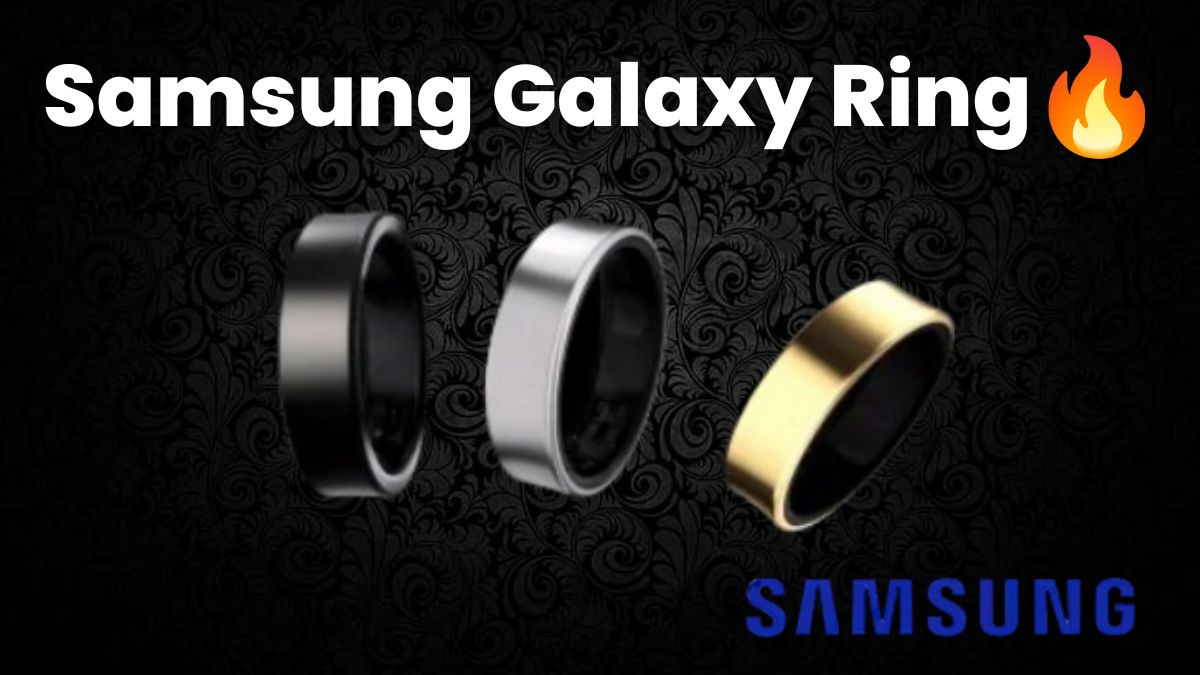Samsung Galaxy Ring : Samsung has officially launched its much-anticipated Galaxy Ring in the Indian market, marking a significant step forward in wearable technology. This smart ring, which began pre-reservations on October 15, 2024, is now available for purchase as of October 16, 2024. Let’s dive into the details of this innovative device, exploring its features, pricing, and what it means for the future of personal health monitoring.
Pricing and Availability
The Samsung Galaxy Ring comes with a price tag of 38,999 rupees, positioning it as a premium wearable device. Consumers can purchase the ring from various platforms, including Flipkart, Amazon, and Samsung’s official website. To cater to different style preferences, Samsung offers the Galaxy Ring in three elegant finishes: Titanium Black, Titanium Silver, and Titanium Gold.
Size Options and Design
Understanding that one size doesn’t fit all, Samsung has introduced the Galaxy Ring in a range of sizes, from 5 to 13. This wide selection ensures that users can find a comfortable fit, crucial for a device meant to be worn continuously. To help customers choose the right size, Samsung is offering a sizing kit option.
The ring’s design focuses on durability and comfort. Constructed from titanium, it boasts a 10ATM rating and IP68 certification, making it resistant to water and dust. The smallest size (5) weighs a mere 2.3 grams with a width of 7mm, while the largest size (13) weighs 3 grams, emphasizing the ring’s lightweight and unobtrusive nature.
Battery Life and Charging
One of the standout features of the Samsung Galaxy Ring is its impressive battery life. Samsung claims that a single full charge can power the ring for up to seven days. This extended battery life is a significant advantage for users who want continuous health monitoring without the hassle of frequent charging.
Health Monitoring Capabilities
At the heart of the Galaxy Ring’s functionality is its advanced health monitoring system. Equipped with Health AI capabilities, the ring can track various aspects of the user’s well-being:
1. Energy Levels: Monitors the user’s overall vitality throughout the day.
2. Sleep Stages: Analyzes sleep patterns to provide insights into sleep quality.
3. Activity Tracking: Keeps tabs on physical activities and movement.
4. Heart Rate Monitoring: Continuously measures heart rate for health insights.
5. Stress Level Assessment: Gauges stress levels to help users manage their mental well-being.
These features work together to provide a comprehensive overview of the user’s health status, accessible through the Samsung Health app.
Smart Features and Integration
Beyond health monitoring, the Galaxy Ring offers additional smart features that enhance its functionality:
1. Gesture Control: Users can perform certain actions using hand gestures, adding a layer of convenience to device interaction.
2. SmartThings Find: This feature helps users locate their ring if misplaced, integrating seamlessly with Samsung’s ecosystem of devices.
The integration with Samsung’s Galaxy AI is a key highlight. The “Health AI” feature utilizes all available health-related data to provide personalized suggestions and insights. Importantly, Samsung has stated that access to this data and information through the Samsung Health app does not require any subscription, making it freely available to all users.
Pre-reservation and Launch Strategy
Samsung’s launch strategy for the Galaxy Ring included a pre-reservation period starting on October 15, 2024. Customers could reserve their ring by paying just 1,999 rupees, a move likely designed to gauge interest and secure early adopters. This approach also allowed Samsung to manage inventory and production based on initial demand.
Implications for Wearable Technology
The launch of the Samsung Galaxy Ring represents a significant evolution in wearable technology. Unlike smartwatches or fitness bands, the ring form factor offers a more discreet and less intrusive way to monitor health metrics continuously. Its ability to track various health parameters while maintaining a sleek, jewelry-like appearance could appeal to users who find traditional wearables too bulky or conspicuous.
The integration of AI for personalized health insights is particularly noteworthy. By analyzing data collected over time, the Galaxy Ring has the potential to provide users with meaningful, actionable information about their health and wellness. This could range from sleep improvement suggestions to stress management techniques, all tailored to the individual user’s patterns and needs.
Challenges and Considerations
While the Samsung Galaxy Ring offers impressive features, potential users should consider a few factors:
1. Price Point: At 38,999 rupees, it represents a significant investment, potentially limiting its accessibility to a broader market.
2. Long-term Comfort: Users will need to assess whether they’re comfortable wearing a ring continuously, especially during activities like typing or exercising.
3. Privacy Concerns: As with any device collecting personal health data, users should be aware of privacy implications and data security measures.
The Samsung Galaxy Ring marks an exciting development in the wearable technology landscape. By combining advanced health monitoring capabilities with a discreet, stylish design, Samsung is pushing the boundaries of what we expect from our personal devices. As the line between technology and personal accessories continues to blur, the Galaxy Ring stands as a testament to the potential of smart, wearable health monitors.
Whether it will revolutionize personal health tracking or remain a niche product for tech enthusiasts remains to be seen. However, its launch certainly signals a new direction in how we might interact with and benefit from wearable technology in the future. As users begin to adopt and provide feedback on the Galaxy Ring, we’ll gain a clearer picture of its impact on personal health management and the broader wearable technology market.









